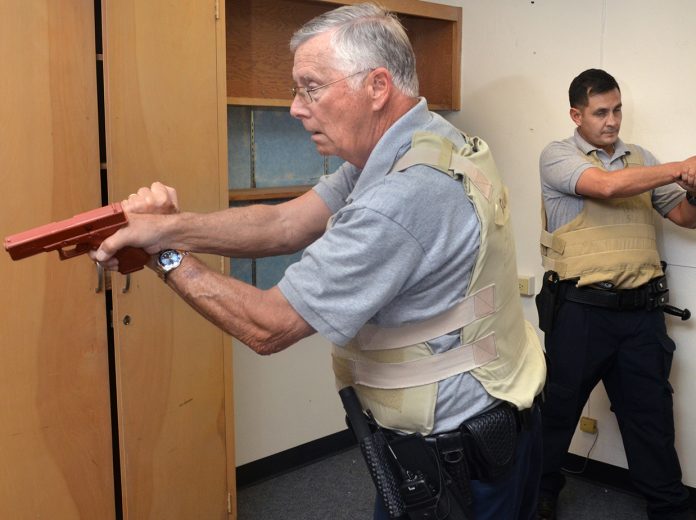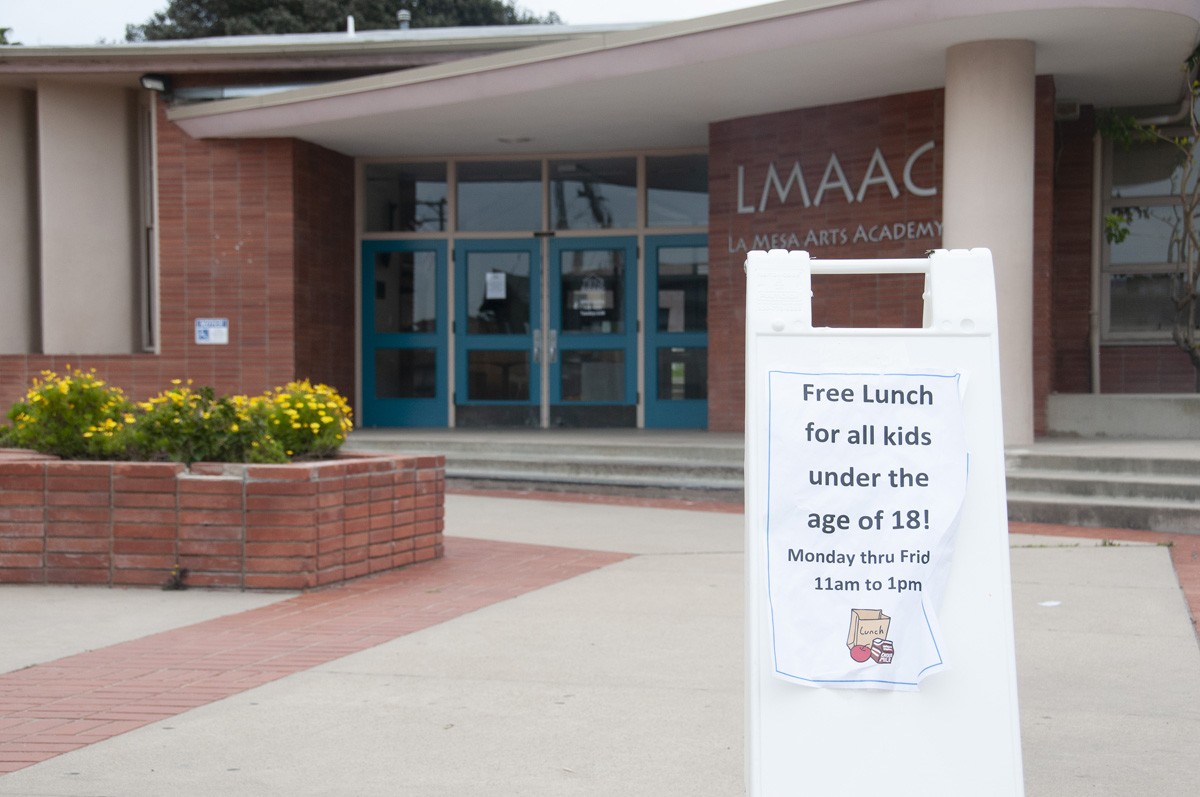Brian Duncan has wanted to be a cop for as long as he could remember, but for the 73-year-old El Cajon resident, that wish has remained an unrequited dream.
At least until now.
He is one of 15 cadets to be graduating from Grossmont College’s 32nd Police Academy and he has his sights set next on joining the El Cajon Police Department as a reserve officer.
Brian Duncan has wanted to be a cop for as long as he could remember, but for the 73-year-old El Cajon resident, that wish has remained an unrequited dream.
At least until now.
He is one of 15 cadets to be graduating from Grossmont College’s 32nd Police Academy and he has his sights set next on joining the El Cajon Police Department as a reserve officer.
“Back when I was just starting out I was told I was too short and because I didn’t have 20-20 vision, I didn’t have the requirements to become a cop – back then, you just had to accept that and try for something else,” he said.
For Duncan, something else was to become a deputy clerk at San Diego Superior Court downtown, a job he held for 28 years. But the dream of joining the ranks of law enforcement never receded and he went on to study prelaw at Southwestern College and to earn a bachelor’s in criminal justice from National University.
At age 61, he began volunteering as a member of the El Cajon Police Department’s Retired Senior Volunteer Patrol – RSVP – assisting with duties such as traffic control, parking enforcement and home security checks for residents away on vacation.
“I’ve enjoyed it very much and people have been urging me to expand my service as a reserve officer, despite my age,” Duncan said.
Last September, he enrolled in Grossmont College’s Police Academy, which is offered every other fall and concludes six months later with graduates becoming POST (Peace Officer Standards and Training)-certified and having the qualifications to become reserve officers. Some continue their training at Miramar College, which offers the advanced certification to qualify for employment as full-fledged police officers.
Tina Young, coordinator of Grossmont College’s Administration of Justice program, said law enforcement agencies rely on police academies like Grossmont’s not only for training, but to staff services like Search and Rescue which relies heavily on the ranks of the reserve.
“Police departments couldn’t find many of our lost without their reserve officers,” she said.
Family and work commitments make it a hardship for many law enforcement recruits to complete the 389 hours of training all at once. The modular format offered at Grossmont allows students to train in segments in evening and Saturday classes and to pay the fees in smaller bites.
Duncan said the training he’s received at Grossmont College has exceeded his expectations and he is looking forward to applying for a slot as a reserve officer. Even though it is an unpaid position, the requirements to become a reserve officer are nearly as tough as what is needed to become a full-time cop. Duncan expressed confidence that he is well prepared.
“The academy training I have received has been excellent and the instructors are just terrific, with many of them working as sworn officers and teaching classes at the same time,” he said.
On a recent Saturday, the Police Academy cadets took part in a daylong practice and evaluation exercise where they completed several training scenarios such as landlord/tenant disputes, encounters with mentally unstable subjects threatening violence, conducting building searches and making vehicle stops.
Roberto Lemus, a retired Chula Vista officer and soon-to-be coordinator of Grossmont College’s Police Academy; Sarah Sutter, a nine-year member of the San Diego Police Department and training officer in Grossmont’s Administration of Justice program; and Keith Sears, a retired member of the La Mesa Police Department, current San Diego City Attorney investigator and also an adjunct AOJ instructor, observed and graded the cadets as they completed the scenarios. Community volunteers stood in as suspects and people of interest.
“These training scenarios are a really good way for the cadets to put what they learn in the classroom into action,” Sears said. “For the cadets, it’s their first taste of what they will be encountering soon enough in real life.”
Grossmont College’s Police Academy graduation is set for 6 p.m. Friday, April 27, in Griffin Gate, Building 60. The next cohort of Police Academy cadets will be starting in fall 2019. For more information, go to the AOJ webpage and click on the police academy link.














